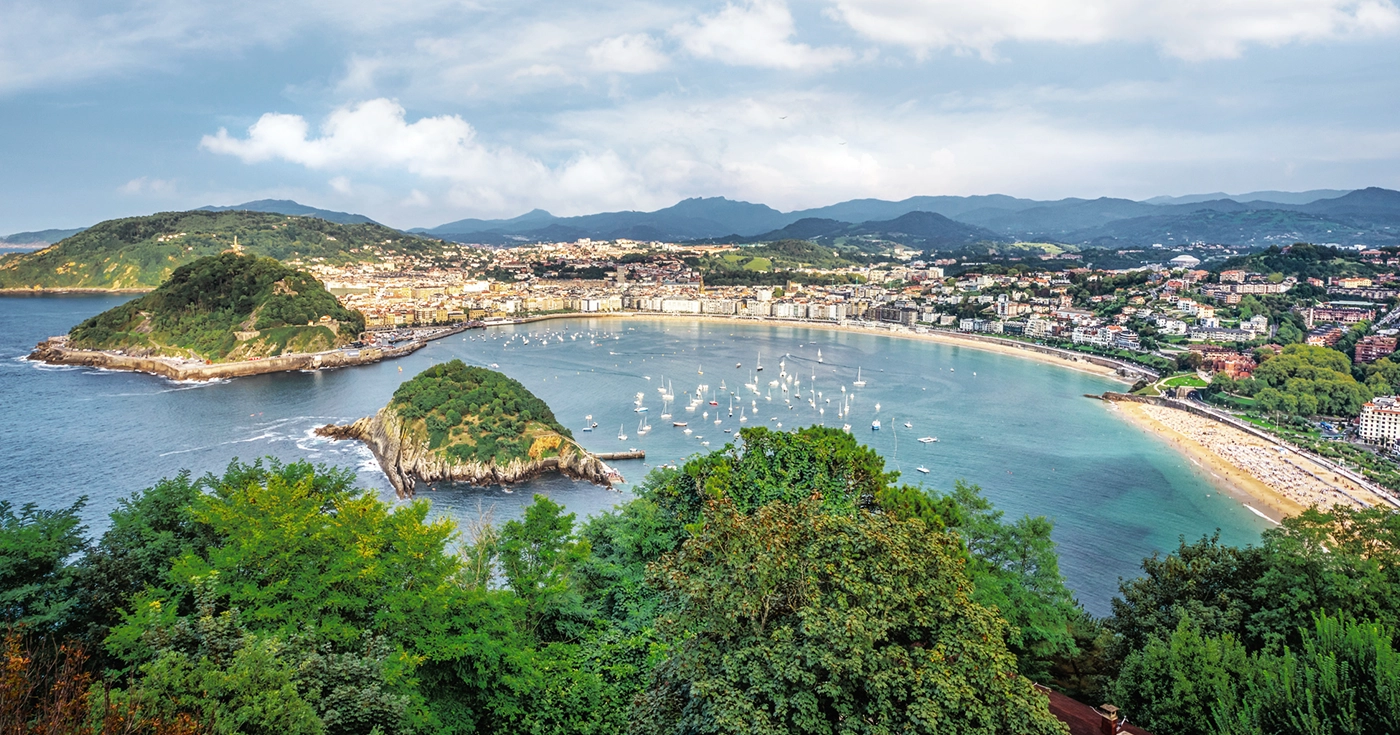
Real estate investment in…the Basque Country
Last Updated on 21 January 2025 by Equipo Urbanitae
The Basque Country, thanks to its solid economy, modern infrastructure, high quality of life, and strategic location in northern Spain, has established itself as an attractive focus for real estate investment. The region offers a wide range of opportunities for investors, especially in key sectors like the living and industrial/logistics segments. Between 2021 and the first quarter of 2024, the Basque Country represented 2.6% of the total national investment, as reported by CBRE at a meeting in Bilbao attended by leading figures in the real estate sector to analyze trends shaping the market evolution in the area. Specifically, in 2023, investment reached 325 million euros, with the living segment leading at 154 million euros, followed by the industrial sector with 86 million euros. The data for the first quarter of 2024 reports a volume of 53 million euros, highlighting activity in the industrial and hotel sectors.
The evolution of the industrial and logistics sector
The Basque Country has established itself as a logistics hub of reference in the Iberian Peninsula. In 2023, a record 150,000 m² of logistics space was leased. Investment in this market totaled 98 million euros, including both developed land and finished warehouses, marking a 46% increase compared to the previous year, despite the challenging macroeconomic context. This positive trend has continued into 2024. Moreover, its efficient transport network, which includes ports like Bilbao and rail connections to Europe, facilitates international trade. The industrial area of Júndiz in Vitoria-Gasteiz and the port of Bilbao are strategic points for warehouses and distribution centers. Companies like Amazon have chosen this region to set up their logistics centers, increasing its appeal to investors in industrial real estate.
Retail and hotel sectors on the rise
The retail sector also plays an important role in the Basque real estate market. Although the rise of e-commerce has changed consumer dynamics, shopping centers and main streets in cities like Bilbao and San Sebastián remain popular. Specifically, Gran Vía in Bilbao is one of the most expensive and sought-after areas for commercial properties in Spain, according to the 34th edition of Cushman & Wakefield’s global report Main Streets Across the World. Meanwhile, the hotel sector is expanding with investments focused on high-quality urban hotels in the main Basque cities, responding to the growing tourist demand in the region.
Living: housing and new residential spaces
Regarding the residential market, although housing prices in the Basque Country are higher than in other regions of Spain, strong demand and sustained market growth make the region an attractive and highly profitable investment option. According to data from the IMIE Local Markets report prepared by the appraisal firm Tinsa and published by the newspaper Norte Exprés, the average price of new and second-hand homes in the Basque Country increased by 2.6% during the fourth quarter of 2024 compared to the same period the previous year. This increase is below the national average of 4.4%. Among the Basque territories, Gipuzkoa saw the largest annual increase, at 4%, followed by Álava (2.7%) and Bizkaia (2.2%). Among the Basque capitals, San Sebastián led the growth with a 3.9% rise, while Vitoria closely followed with 3.8%, and Bilbao recorded a 2.5% increase. San Sebastián stands out as the city with the highest price per square meter in Spain, due to its tourist appeal and limited space for new constructions. According to a recent report by the real estate portal Pisos.com, Donostia, with 6,483 euros per square meter, is the most expensive provincial capital in Spain. On the other hand, Bilbao is focusing on urban regeneration with projects like Zorrotzaurre, which will transform an old industrial area into a modern residential and business district. This initiative creates opportunities for both new housing and rental properties, with growing demand among young professionals and students.
Imbalance between supply and demand in residential
The report “Housing market analysis in the Basque Country in 2024,” prepared by Fotocasa Research, reveals a significant imbalance between supply and demand. While 23% of Basques want to change homes, only 5% have put a property up for sale in the last year. This trend mirrors the national average, where the proportion of demand is also 23%, compared to 6% of sellers. Over the past year, 28% of Basques participated in real estate transactions, exceeding the national average by one percentage point (27%). The buying and selling segment was the most dynamic, with 17% participation, three percentage points above the national average. However, much of this activity did not materialize: 13% sought to buy a home without success, while only 4% managed to close a purchase. As for renting, the market is less active. 10% of Basques participated in this segment, below the national average of 12%. Of these, 4% successfully rented a property, another 4% was unsuccessful, and 2% unsuccessfully searched for a room in a shared flat. Only 2% of the population rented out their home during the last year. Regarding price evolution, María Matos, director of Studies and spokesperson for Fotocasa, has highlighted that housing demand in the Basque Country is five times higher than supply, which could lead to price increases in both buying and renting. Additionally, the Basque market places more emphasis on buying than renting, more so than the rest of the country. These particularities make it crucial to closely monitor the evolution of this market in the coming months.

